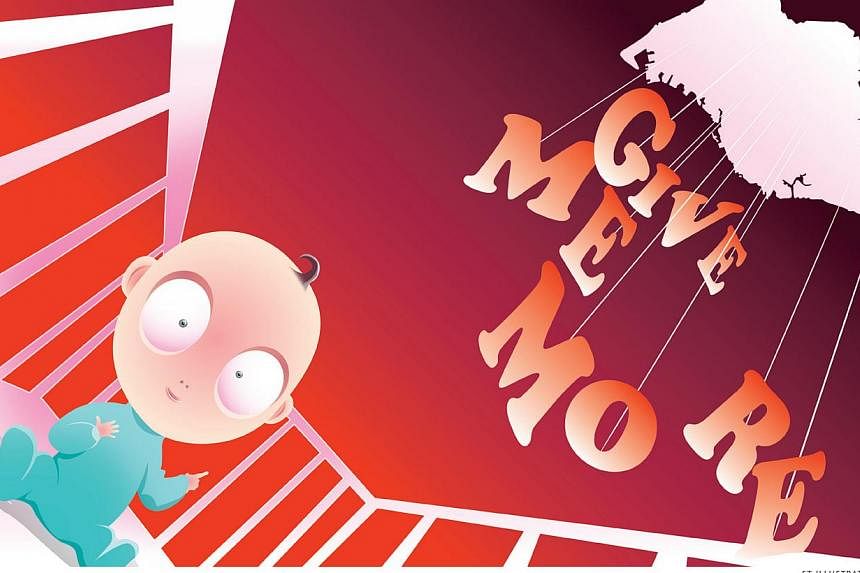Just for the record, The Straits Times wasn't the first news outlet to call Budget 2015 a Robin Hood Budget, for the way it raised tax rates for top earners and gave out millions in training, education and old-age allowances to the masses.
That honour belongs to Bloomberg. Its story online was dated Feb 23, 6.24pm, about an hour after the Budget was delivered. Titled "Singapore unveils Robin Hood-style Budget with boost to top tax rate", the first sentence read: "Singapore took another step towards Western welfare systems and further from low-tax models like Hong Kong."
At that time, I was in the newsroom writing my own commentary for The Straits Times' digital edition. I didn't read the Bloomberg story.
My article on the Robin Hood Budget was posted on our website at 8.06pm, and shared on our Facebook.
That Robin Hood label has since been reprised in several other news articles, leading Deputy Prime Minister and Finance Minister Tharman Shanmugaratnam to state categorically, one day after the Budget: "Robin Hood makes a good newspaper commentary, but that's not our strategy. We need to spend more over the next five years in the common interest."
Instead, he framed the issue this way: "To have a cohesive society, you need public good that everyone shares in, and someone has to pay for it. We all pay for it.
"It is important for all of us, whenever we talk about taxes, whenever we talk about our obligations, to take a collective approach. This is our society... We need to take collective responsibility."
Robin Hood - who cared for his band of merry men and the poor - would surely agree.
In fact, this year's Budget surprised me not so much for the tax hike for top earners, as for the large deficit incurred.
Yahoo News reported it thus on Feb 24, under the headline "Massive 2015 Budget deficit far exceeds analyst expectations": "The Government yesterday declared a fiscal deficit of $6.7 billion, or 1.7 per cent of the GDP, for Budget 2015. The staggering figure far exceeded initial analyst forecasts."
To be sure, a deficit of $6.7 billion when the Government has current reserves (accumulated since 2011) estimated at about $15 billion is not a big deal. After all, current reserves must be transferred to past reserves when a government's term ends with a general election, so it makes sense for a government to spend its savings within its five-year term.
Also, the deficit comes because of massive spending on infrastructure, such as $3 billion into the Changi Airport Development Fund. It also includes $6 billion salted away into endowment and trust funds for the long term.
Singapore also has the benefit of net investment returns contribution (NIRC), which are projected returns from its past reserves. That has added a whopping $55.9 billion in the last seven years to the Budgets, at the rate of between $7 billion and $9 billion a year from FY2009 to FY2015.
Ratings agency S&P also gave the Singapore Government an unsolicited top AAA rating a day after its Budget.
It noted that the bulk of the $68.2 billion spending Budget was to boost the country's economic growth potential, train workers and ensure increased funding to meet the needs of Singapore's ageing population. Investments in these areas "significantly outsized" the $705 million transfers to households, it noted.
So the overall consensus is that Singapore remains a fiscally sound place. We are far from prospective bankruptcy brought on by the spendthrift ways of some Western governments. But some fiscal conservatives in Singapore have already voiced concerns about the pattern of spending. The Straits Times Forum page had two readers asking if the Silver Support allowance, which will become a permanent feature of the social safety net, is fiscally sustainable.
Indeed, a look at recent Budgets shows that Singapore has got into the habit of spending more than it makes annually, if you do not include contributions from net investment returns.
This year, operating revenue, which comes mainly from taxes and fees, amounts to $64.27 billion. Spending is $68.22 billion, exceeding revenue by $3.95 billion. This is called the primary deficit.
Despite running a primary deficit, the Government is giving away a generous $5.67 billion in "special transfers" - such as top-ups into students' individual education accounts, a special seniors' bonus, and co-funding wage increases for those earning up to $4,000 a month.
This brings what is called the "basic deficit" to a whopping $9.62 billion. This is the gap between what is earned in revenue (minus NIRC) and what is spent on running the country and on giveaways for the year.
This is like a wealthy family that makes less than it earns in a year. What does it draw on to make ends meet? Interest from past savings.
It then decides to give away more money to its extended family members. What does it draw on? Interest from past savings built up by frugal ancestors.
In the seven years since FY2009, the Budget ran into a basic deficit in four years.
In FY 2009, the basic deficit was $6.416 billion. In FY2010, it was $0.782 billion. In FY2014, it was a small $0.178 billion. And in FY2015, it is estimated at $9.615 billion.
Does it matter?
One might say it does not, if the money is well spent, on the poor and elderly for instance. Some will point out a large part of the spending is on investment in people, like on education and skills training. Others will say it's fine to go into deficit to spend on long-term capital projects like the airport and MRT lines.
One might also point out that the country has ample reserves. The NIRC allows up to 50 per cent of the long-term expected real return from net assets managed by GIC, the Monetary Authority of Singapore and Temasek Holdings to be used. This is like spending half the interest from past reserves, and leaving the capital untouched.
My concern, though, is that Singaporeans may get too used to the habit of expecting to dip into the interest, or worse, the capital, of past reserves, to finance current spending.
This would be like rich kids who come to depend on their family trust funds to finance their lifestyles. Andrew Carnegie wrote in 1891 in Advantages Of Poverty that "the parent who leaves his son enormous wealth generally deadens the talents and energies of the son, and tempts him to lead a less useful and less worthy life than he otherwise would".
Mr Tharman was right to talk about collective responsibility. If citizens start to feel entitled to the state's largesse from past reserves, the clamour for more - and more specious - spending will increase.
Amid the feel-good, celebratory mood of Budget 2015, we should pause to reflect on the blood, tears and sweat that went into building those billions of dollars of reserves.
The last thing our pioneers want, or deserve, is for future generations of Singaporeans to have a "trust fund kids" mentality, relying on the country's trust fund of reserves to fund excessive spending.


